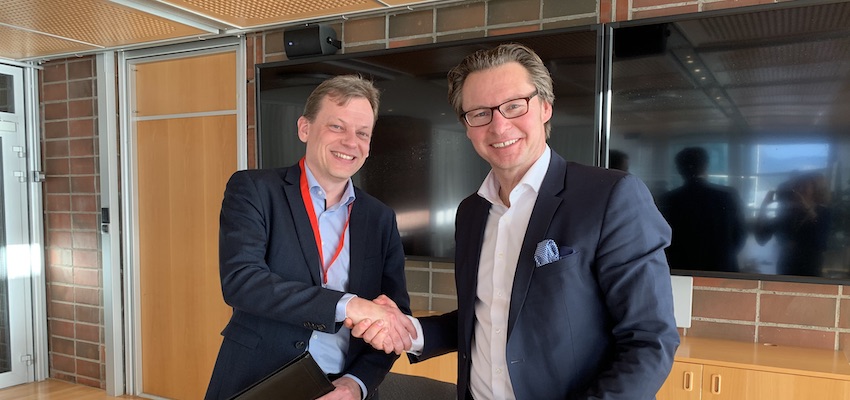A MEMORANDUM of understanding signed by technology group Wärtsilä and classification society DNV GL will see them work together to contribute to the marine industry’s ongoing digital transformation.
In particular, the two companies wish to further explore the potential use of digital technologies, collaborative data sharing, and standardisation to enhance existing products and services, and to develop new ones.
The agreement was signed by Roger Holm, president, Wärtsilä Marine and Knut Ørbeck-Nilssen, CEO, DNV GL – Maritime on 6 February.
Among the focus areas will be collaboration on digital technologies and big data in classification and the requirements for their use. The project will examine the application of these technologies in areas such as autonomous ships, advanced remote services, new bridge technologies, and data sharing. Cyber security will be another natural area of cooperation.
“The marine industry stands to benefit enormously from our rapidly expanding and unprecedented capabilities in collecting, compiling, processing, analysing, and distributing data digitally,” Mr Holm said.
“Wärtsilä is committed to leading this digital transformation that will undoubtedly lead to greater efficiencies, better safety, and sustainability. We look forward to working with DNV GL to accelerate this transformation.”
Mr Ørbeck-Nilssen said, “At DNV GL, we are committed to using digitalisation to help our customers extract the maximum value from their data.
“Working together with Wärtsilä, we can identify and minimise the barriers to data sharing, provide innovative class and assurance services, and find ways to capitalise on the new possibilities this opens up for shipping.
“Enabling greater sharing requires building trust, and DNV GL has worked to enable this, for example with our independent platform Veracity which provides seamless sharing, while ensuring the quality of data and algorithms our customers rely on.”
Wärtsilä believes the collaboration will help to standardise and shape the regulatory environment, and will also enable the innovations needed for the sector to achieve the decarbonisation goals set out by the IMO.

